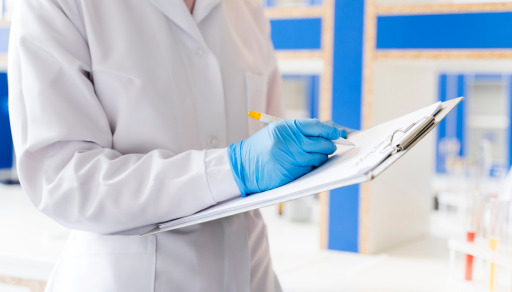It’s impossible to overstate the importance of quality controls in the laboratory. No matter the type of lab that is in discussion, whether it is a research, test, or development lab, none of them can be at their best if appropriate quality controls have not been put in place. To make sure we fully understand the significance of lab quality controls, we will explore the concept in depth.
What are Laboratory Quality Controls?
Lab quality controls are protocols in the lab that help to ensure the integrity of the lab environment and the systems that the lab implements. Quality controls in the lab achieve this by detecting issues early, specifically those that pertain to results or measurements. Without these proper guidelines in place, laboratories will miss out on accreditation and certification.
Reliable Results
Quality controls are put in place to enhance the standard of lab procedures and results. If they are neglected, the lab are sure to see a decrease in the accuracy and reliability of both lab procedures and results. Let’s take a testing lab, for example. In testing labs the integrity of samples is extremely important. Where quality controls are lacking, samples can be negatively affected, resulting in time wastage, and labs incurring extra costs as they try to rectify issues with samples.
Labs meeting proficiency testing requirements is another reason why quality control is so vital. Without essential standards like this, it makes it harder for clients to trust labs. Trust is something that clients need to have in labs, because the results of certain tests produced in laboratories can result in life-or-death consequences. Once a customer loses trust in a lab it is very difficult to earn that trust back.
Safety
It’s not just results that matter in the lab, the actual personnel also need to be taken care of. Suitable quality controls will ensure that lab equipment is properly working and that professionals in the lab carry out procedures in a safe manner. This is especially important for labs that deal with dangerous materials or chemicals. With proper quality control, small accidents can be kept from becoming larger incidents.
Quality control isn’t just about making rules for the sake of it. The stringency of quality control protocol and guidelines are in place to ensure reliable results, achieve client trust and keep lab personnel safe.
Identifying and Avoiding Laboratory Errors
Errors In the lab can occur in three experimental or test stages, either pre-analytical, analytical, or post-analytical. The sort of errors that we might see in the pre-analytical stage would be when test samples or materials are improperly handled before they’re analysed. Specifically, samples being mixed up, mislabeled, improperly stored or transported, and inappropriate sample collection methods are the types of error that we might see in the pre-analysis stage of experimentation.
For pre-analytical errors to be avoided, we must make sure that the appropriate sample collection methods are executed by adhering to the Standard Operating Procedure (a step-by-step, repeatable process for routine lab tasks). This includes making sure samples and tests are properly labelled with correct sample names or lab codes, date of collection, source, and the test to be carried out, and ensuring test materials are transported in suitable containers at the recommended temperature.
Tests and samples should be properly stored to avoid results being compromised. If samples degrade or are contaminated it may cause incorrect experimentation results. Another procedure that you are advised to follow is sub-sampling. By storing aliquots (a portion of a larger whole) of samples you can have access to backup test material if errors occur later on in the experiment process.
Most errors in the analytical stage will take place during the testing or experimentation process. Reasons for errors in this stage could be the wrong test reagents or the wrong proportion of reagents being used, defective and non-calibrated equipment being used, or a general lack of compliance with SOPs.
The best way to avoid these errors is by making sure the equipment is properly functioning and calibrated, providing a proper inventory where all reagents are listed, ensuring all standard operating procedures are documented and accessible, and disciplinary action is taken when personnel do not comply with SOPs.
The type of errors that usually occur in the post-analytical stage are less likely to be practical or lab based in nature. It is here that we might see inaccurate calculations, poor documentation, or false experiment conclusions.
The best way to prevent these issues from occurring is by automating calculations and making sure that professionals who are in charge of making conclusions about experiments and documenting results are qualified to do so.
Lab quality controls directly influence how well experiments are carried out and contribute to ensuring that the conclusions of experiments are accurate. To streamline lab processes, it is important to make sure that they are all documented and that tasks are assigned to specific professionals. Senior members of staff should ensure that all personnel take part in the making and executing of quality protocols. Although a lot of time and effort is required to produce adequate lab quality controls, from the design and implementation, to overseeing that guidelines are being adhered to, the process is worth it.
Being that a large part of quality control is making sure that lab professionals are equipped adequately to handle any mishaps in the lab that arise. It’s definitely important to make sure you have up-to-date lab equipment. If you feel that there are areas in your lab that require an upgrade in terms of equipment, look no further than Techmate! You can either contact us or look through our modern lab supplies that will enhance the efficiency of your lab, including laboratory balances, electric ovens, and callipers.

